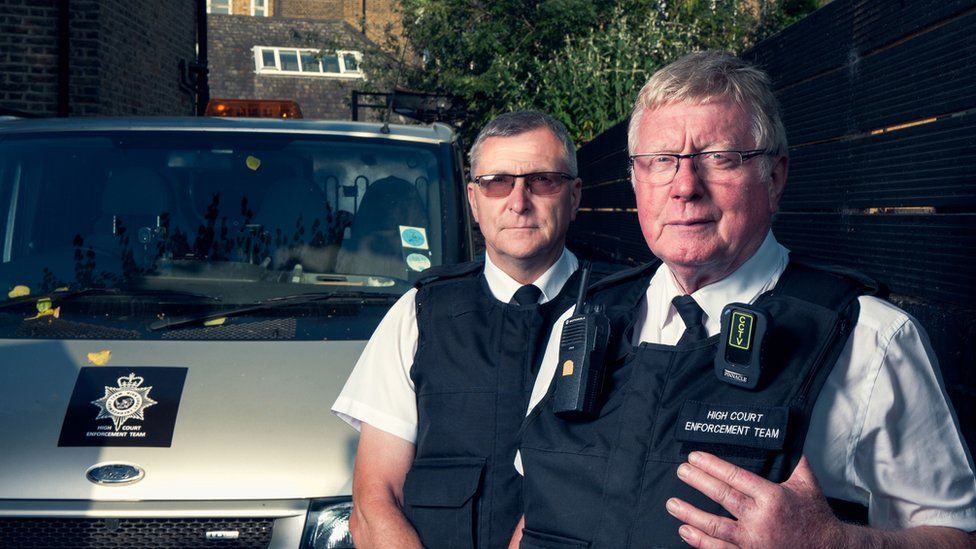Channel 5 ordered to pay £20,000 damages to evicted couple
- Published

Channel 5 has been ordered to pay a couple £10,000 each for the distress of broadcasting them being evicted.
Shakar Ali and his wife Shahida Aslam, from Barking, east London, were filmed by Can't Pay? We'll Take It Away after they fell into arrears on rent.
Mr Ali did not give consent for the footage to be used on TV, but it was not only shown but repeated 35 times.
The High Court ruled the couple's privacy outweighed Channel 5's right to freedom of expression.
Mr Justice Arnold awarded the damages for distress caused in the filming and misuse of the couple's private information.
Can't Pay? We'll Take It Away is a long-running series that follows the work of a team of High Court enforcement officers.
In 2015, Mr Ali, 52, and Mrs Aslam, 49, were filmed by a TV crew and High Court officers who were wearing body cameras, whilst they were evicted from their home.
Mr Ali had fallen behind on rental payments for the house, which he shared with his wife and two children, as he recovered from a heart condition and a badly injured foot.
The owner of the property had obtained a court order for repossession, and used a team of enforcement officers to carry out the eviction. The court officers were joined by a TV crew who entered the house filming the couple's reaction, and filmed in their children's bedrooms.
During the eviction the landlord's son was seen to be "taunting" Mr Ali and complaining about how much money the rent arrears and eviction order had cost his family.
Despite Mr Ali asking the enforcement officers and the film crew why they were filming, no-one explained who the film crew were or why they were there.
Mr Ali did not give his consent to the filming but editors at Channel 5 went ahead with the broadcast as planned. The programme was ultimately broadcast 36 times on Channel 5 and its sister channels. It was also available to view online.
The total cumulative audience was said to be 9.65 million people, but this would have included repeat viewers.
Mr Ali also contacted the production company after the eviction and before the programme was first shown to ask for it not to be broadcast.
Mr Justice Arnold ruled that, despite Channel 5's claims that Mr Ali had provided his consent by talking to the producers and enforcement officers during the eviction, "he unequivocally withdrew that consent" when he asked for the programme not to be shown.
Mr Ali claimed that the programme "showed them at their lowest ebb.... in a state of shock and very distressed... [and] caused them significant loss of dignity".
Channel 5 argued that under "freedom of expression" laws they were entitled to show what happened during the eviction.
'Wider ramifications'
However, the judge said that the Ali family had a "reasonable expectation of privacy" and that the "focus of the programme was not upon the matters of public interest, but upon the drama of the conflict" between the family and the landlord's son.
The judge ruled the family's right to privacy outweighed the documentary maker's right to freedom of expression.
Christopher Hutchings, who represented the family, said the ruling was "one of the first legal actions" arising from "an observational documentary".
He added: "[The] judgement will inevitably have wider ramifications for those broadcasting film of a similar kind."
Channel 5 said it welcomed the judge's assessment, which recognised the show was "made in good faith and in the public interest".
A spokesman added the case only related to "a segment involving the Ali family and not the series in general".